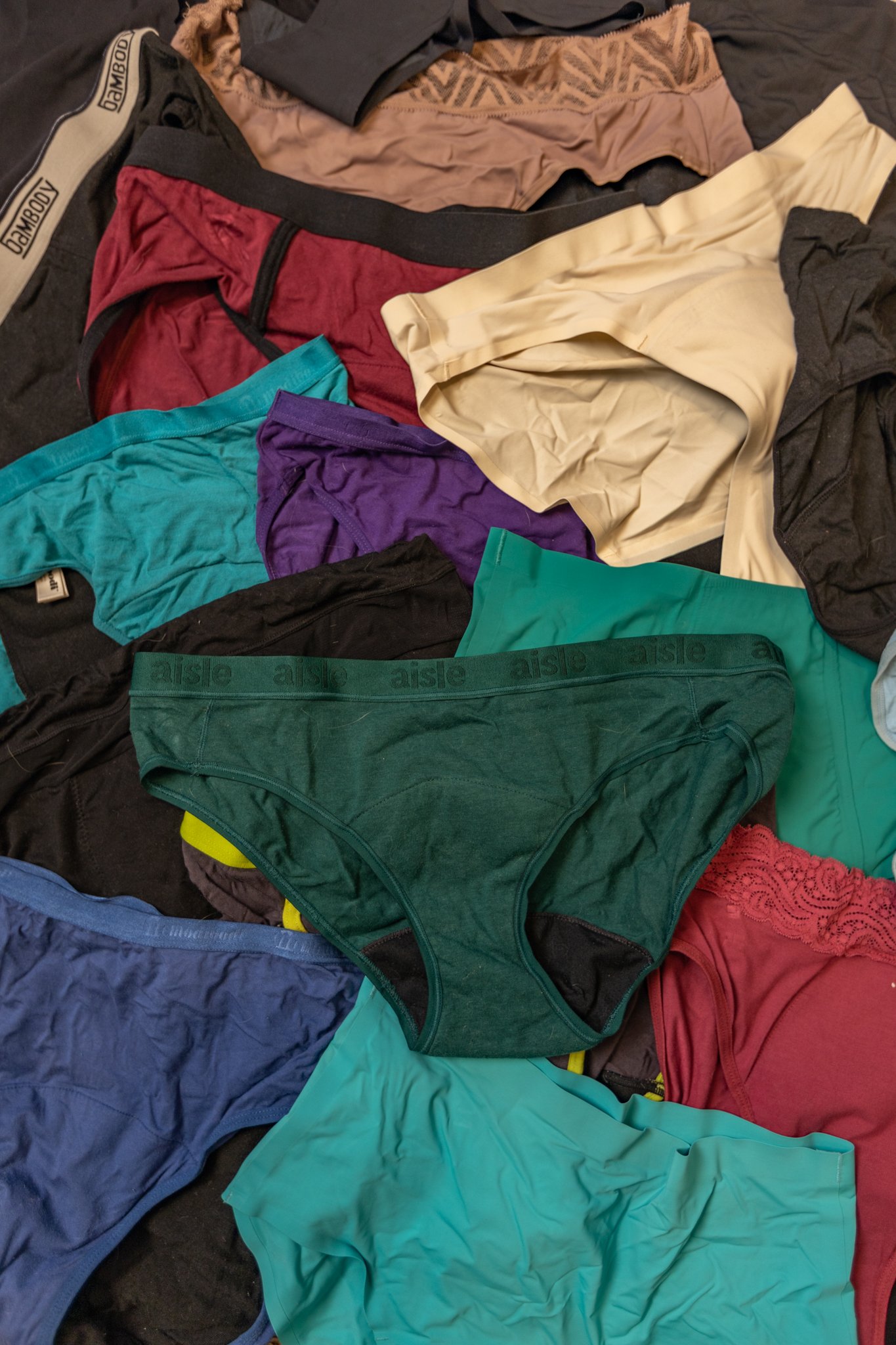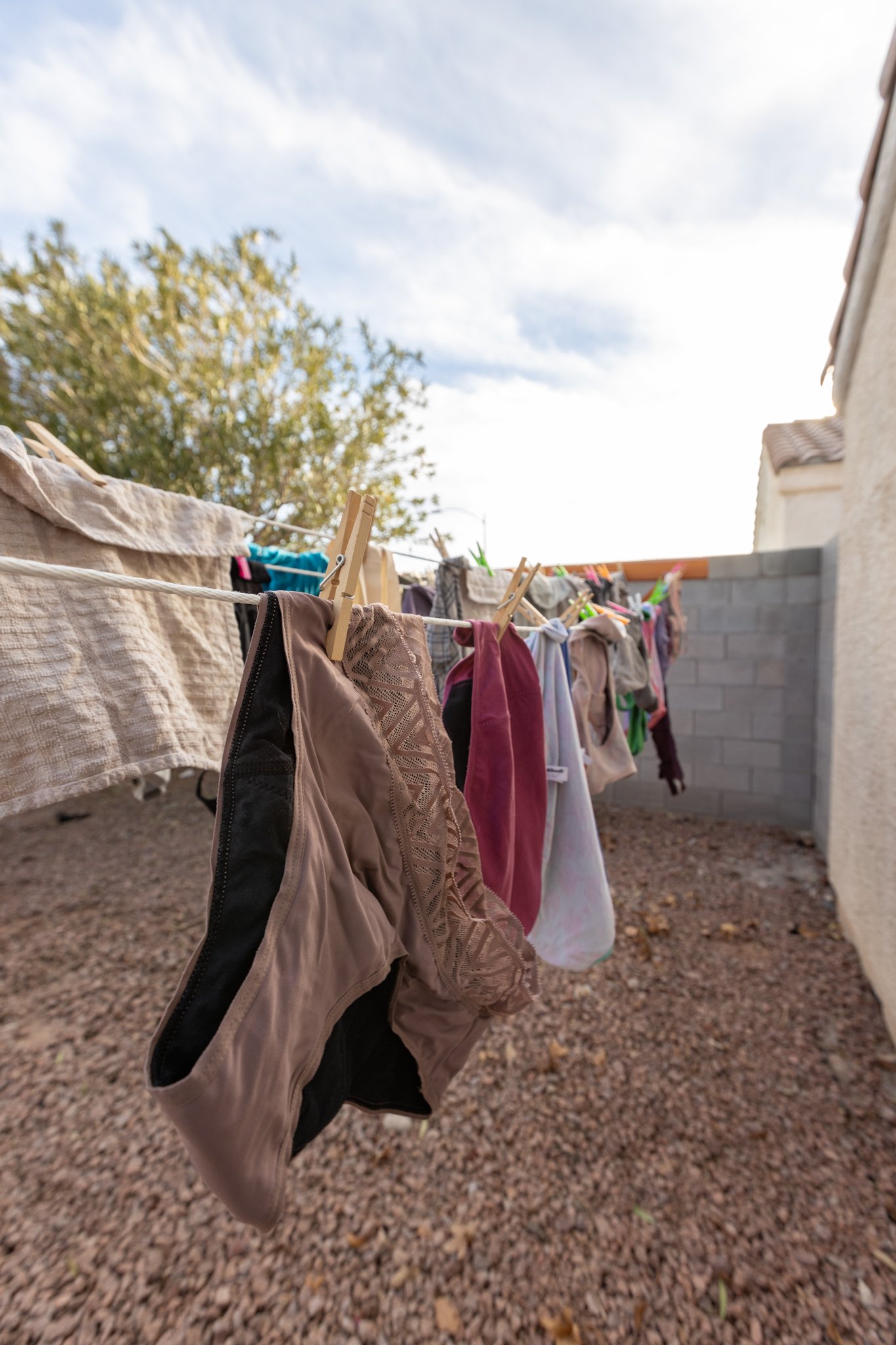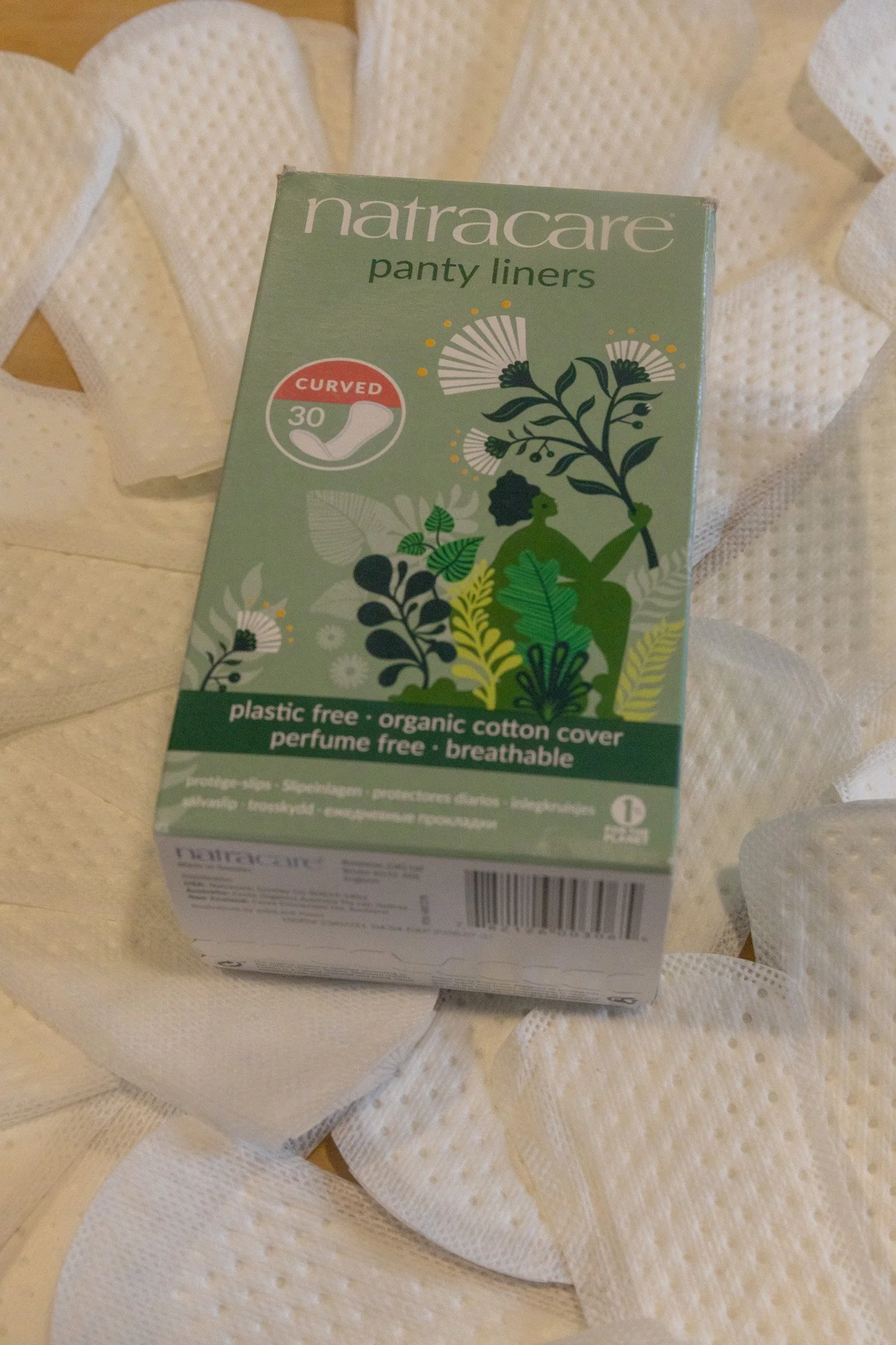Toxins in Our Period Products…Which Ones are Safe?
There’s PFAS forever chemicals in our period underwear and there’s led in our tampons. It’s already hard enough to have a period, but now we learn we’ve been poisoning ourselves?
Are there any period products that are actually safe for our bodies and also the planet? Let’s find out.
Period Underwear
Not all period underwear contain PFAS, or “Perfluoroalkyl and polyfluoroalkyl substances (PFAS) are a group of synthetic chemicals that are resistant to grease, water, heat, and oil.” They’re everywhere from household items to clothing to period products. According to the environmental working group, it is likely that these PFAS were added intentionally to make the products more waterproof…or, liquid-proof? I suggest you watch their entire presentation here, but in short, out of all of the period products they tested, period underwear came back the highest. But, they PFAS-containing layers are usually the exterior layers meaning that they aren’t actually touching your body, especially a part of your body that is highly sensitive.
There are many affects from PFAS to include immune disruption and endocrine disruption. Plus, disposable products that contain PFAS (pads and tampons have them too) also have negative affects on the environment when they end up in the landfill.
Good news, it’s not ALL period underwear! Here are some PFAS-free period underwear according to The Good Trade:
The Period Company (check out my review here)
TomboyX (check out my review here)
Modibodi (check out my review here)
Wuka (check out my review here)
Saalt (check out my review here)
Ruby Love (check out my review here)
Dear Kate (check out my review here)
Period Aisle (check out my review here)
As you can see, there are plenty of options you can try or keep using that are PFAS-free. Period underwear have been my favorite zero waste period swap so I am glad to hear good things about these brands I was already using!
Tampons
Now we know that tampons contain lead and other heavy metals, we need to stop using them. In fact, some brands contain 24x the limit for bottled water and we’re literally putting it directly into our bodies. This is alarming. Of course, like with PFAS, this ending up in the landfill will also leach into our soil and groundwater. It’s bad news all around. This does include organic as well.
There are also traces of 16 other heavy metals and toxic substances found in tampons. Not cool.
But what if you enjoy tampons the most? Let’s see if we can’t find some that are safe for our bodies and the planet. Of course, this is not a perfectly waste-free option, but let’s see how much waste we can reduce.
Your best bet? Opt for organic, plastic-free, and fragrance-free tampons. Does this automatically mean your lead and other heavy metal exposure will be 0? Nope! But it does reduce your likelihood for it.
The best label you can look for is GOTS-certified organic cotton. What does this mean? You can learn more about GOTS in full here but the short version is “Global Organic Textile Standard (GOTS) is the worldwide leading textile processing standard for organic fibers. This certification provides credible assurance of responsible manufacturing with the least chemical inputs. Ultimately, it ensures quality organic fabric for end consumers.”
Again, this does not mean your chances of encountering lead or other chemicals is 0, unfortunately, but it is much lower. Here are some GOTS-certified organic tampons you can try out:
Dame (check out my review here)
Natracare (I have worked with them for years and love them as a company and as a product!)
Bonus points if your tampons are applicator-free or have a cardboard applicator. Need an applicator for one reason or another? Check out this reusable tampon applicator from Dame!
Disposable Pads
According to Time Magazine, 48% of pads tested for PFAS came back positive. That’s a lot. I would assume it’s like period underwear and the PFAS are intentionally added for water restistency.
But, that’s not all that’s hiding in pads…
According to Women’s Voices, the popular brand, Always, pads also tested high for the following:
“The Always menstrual pads were found to contain several chemicals of concern, including the following:
Styrene: carcinogen
Chloromethane: reproductive toxicant
Chloroethane: carcinogen
Chloroform: carcinogen, reproductive toxicant, neurotoxin
Acetone: irritant.”
I know reusables aren’t for everyone and if this post won’t encourage you to make the swap for the health of the planet and your own health, nothing will. If you need to stick to pads, similar to tampons, here are some GOTS-certified organic pads you can try out:
Dame (check out my review here)
Natracare (I have worked with them for years and love them as a company and as a product!)
Reusable Pads
Reusable pads aren’t the most popular zero waste period option so there doesn’t seem to be as much information about them and the safety of the materials used to create them on the internet. But, I think it’s probably safe to assume that unless explicitly stated, they likely contain PFAS given the track record of other period products.
Good news, though, many of the brands that make PFAS-free period underwear also make PFAS-free reusable pads!
You can also make them yourself out of a nice cotton-based flannel. My friend Tiny Waste on TikTok makes her own and they’re amazing!
Image from Squarespace
Menstrual cups and discs
Menstrual cups and menstrual discs seem to be the best option, right? Well, the EWG agrees! The EWG says that menstrual cups and discs pose the least risk, though, of course, that risk is not 0. This could be that this is not a very common period care item. Perhaps not a lot of them were tested. But, the same study that was conducted on the period underwear that I referenced before also tested some menstrual cups and they came back low. I wish it was 0, but I guess we have to take these small wins where we can get them.
Other than that, there really isn’t that much on the internet about forever chemicals and other heavy metals like lead in menstrual cups and discs.
But, good news, Saalt, a brand proven to be PFAS-free also makes menstrual cups and discs and they work so well! I’ve been using Saalt for about 3 years and always turn to them.
At the end of the day, here is the basic advice:
Opt for organic. It’s not perfect, but it IS better
Opt for plastic-free and applicator-free as much as possible
Check out some of the vetted brands I listed above
Email your favorite brands and demand action! We deserve better. We should not be forced to use products in and on our bodies that are harmful to ourselves and the planet for a bodily function we cannot control.
I hope this helps amongst all of this controversy. Do what works best for you and the planet. You can learn more about zero-waste periods in these videos:
The ultimate period underwear review initial thoughts
Period panties review after using them for a year
Period undies, reusable pads, and menstrual cup review
How to care for period underwear
Answering all your period underwear questions
Reviewing reusable tampons and menstrual discs
Which option are you going to be choosing?
As always, remember that your small actions make a big difference in the long run :)
Emma












